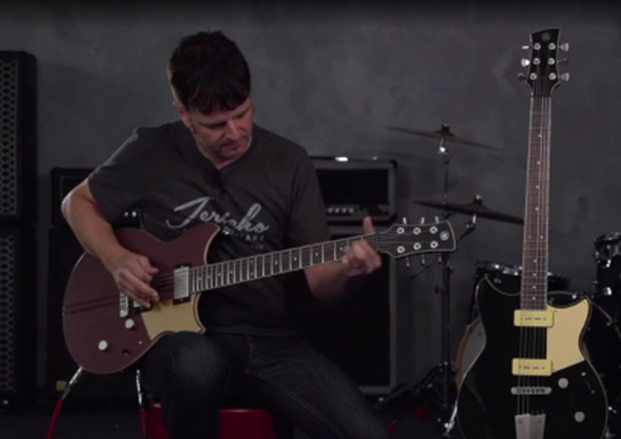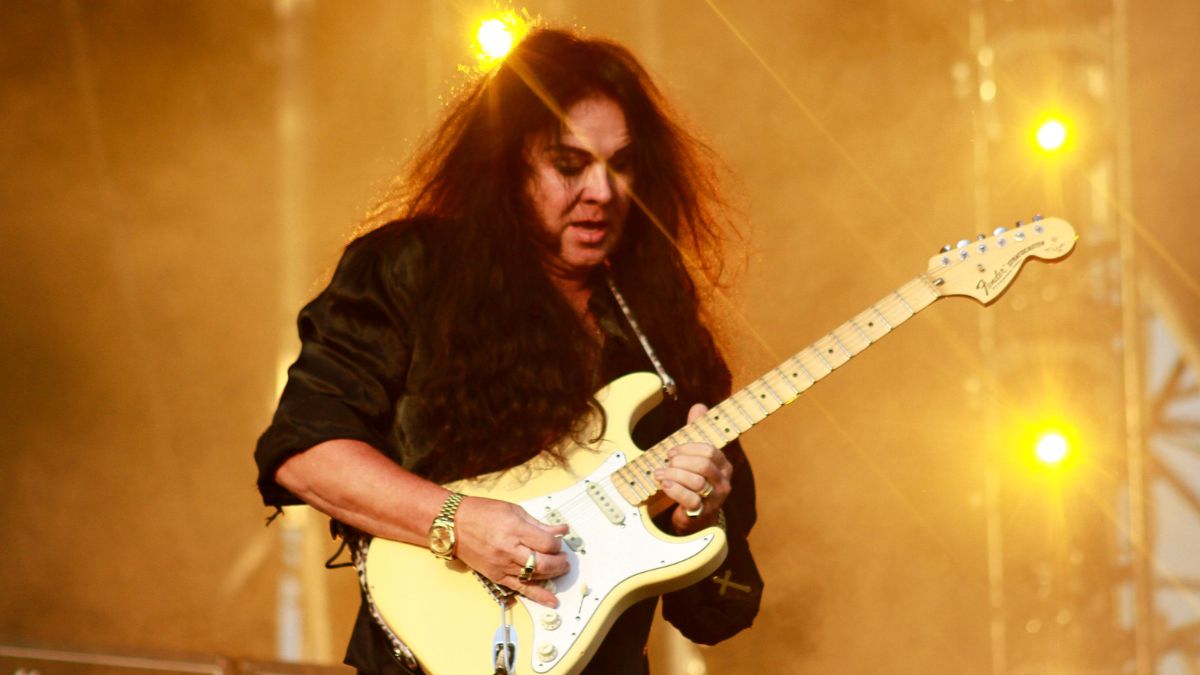Review: Yamaha Revstar RS502T and RS820CR Guitars

GOLD AWARD
It’s been quite a long time since Yamaha introduced an entirely new electric solidbody guitar model, let alone a new series of them.
In fact, previous to Yamaha’s new Revstar series, their most recent new solidbody model was the RGX-A2, which made its debut in 2004. In today’s current lineup, the SG/SBG series have existed since 1974 (although they were unofficially discontinued between 1988 and their resurrection in 2010) and the Pacifica series has remained in constant production since 1990.
Needless to say, when Yamaha introduces a new series of solidbody electric guitars, they have a good reason to and one can generally count on them being around for a while.
While Yamaha has introduced several impressive guitar innovations in the new millennium, including the “Silent Guitar” and their Alternative Internal Resonance (A.I.R.) body construction technology, the new Revstar series is really more a refinement of traditional designs than a radical new rethink. In addition to offering timeless features inspired by some of the most classic guitar designs ever, a few of the eight new models—including the RS502T and RS820CR guitars that we tested—have styling influenced by British and Japanese café racer motorcycles, which is long overdue considering that Yamaha motorcycles are as popular and beloved as their guitars.
FEATURES
A quick glance at the spec sheets for the RS502T and RS820CR suggests that both models are heavily influenced by Les Paul designs circa 1955-57. Both have a mahogany body with a maple top, set-in mahogany neck with a rosewood fingerboard, 24 3/4–inch scale, and 22 frets, and either a pair of full-size humbucking (RS820CR) or P-90-style single coil (RS502T) pickups. However, Yamaha has made numerous refinements to those designs and even introduced a few impressive innovations.
Get The Pick Newsletter
All the latest guitar news, interviews, lessons, reviews, deals and more, direct to your inbox!
Both models feature master volume and master tone controls, and the master tone control pulls up to engage Yamaha’s passive “Dry” circuit, which rolls off frequencies below 2kHz by about -5 to -10dB to enhance clarity. The RS502T’s VP5 single-coil pickups built by Yamaha Guitar Design (YGD) feature alnico V magnets, a German silver baseplate, plain enamel wire, and 8.3k ohms output. The RS820CR’s VH5+ humbuckers also have alnico V magnets and German silver baseplates, but the wire is heavy formvar and the output is 8.3k ohms for the neck pickup and 8.8k ohms for the bridge pickup. Both models have a blade-style three-position pickup selector switch.
The café racer connection is most notable in the finish and matte/satin hardware of both models. The RS820CR has a TonePros AVT-II wraparound bridge with individually adjustable saddles, while the RS502T has a traditional Tune-o-matic style bridge and a very cool spring-loaded floating aluminum tailpiece. Finish options for the RS820CR consist of Rusty Rat (flat blue-gray) or Steel Rust (flat burgundy), both with glossy two racing stripes going down the center, while the RS502T is only available in what is probably the coolest shade of British racing green ever.
PERFORMANCE
Like a well-designed café racer motorcycle, the Yamaha Revstar series guitars are built to fit to players’ bodies as snug as a leather racing jacket. The back of the body has a generous belly contour, and the top’s lower bass bout is gently beveled for playing arm comfort. Jumbo frets and an asymmetric vintage-style neck profile (thicker at the bass strings, slimmer at the treble strings) provide fast, effortless playability. The asymmetric double-cutaway body shape, which resembles an offset variation of Yamaha’s classic SG/SBG body style, provides excellent access to the entire neck.
While the fit and feel of Yamaha’s Revstar guitars are certainly impressive, what really knocked me out is how expressive and lively they both sound. The RS502T is ballsy and aggressive, like a good P-90-equipped guitar should be, with complex upper midrange harmonics and tight low-end spank, plus impressive resonance and sustain from the floating tailpiece. Engaging the Dry switch takes the pickups towards fat Strat territory but with more body and midrange punch. The RS820CR similarly offers a fine example of dual-humbucker maple/mahogany tone, with the Dry switch providing more cut and presence without sacrificing crucial midrange body.
With their new Revstar series, Yamaha may not have reinvented the wheel, but when you strap one on it’s still going to take players for one hell of a ride.
LIST PRICES $1,129 (RS502CR); $1,549 (RS820CR)
MANUFACTUER: Yamaha Corporation, Yamaha.com
• Visual styling inspired by café racer motorcycles includes the distinctive finishes and matte/satin hardware.
• Both models feature an innovative Dry switch that gradually rolls off bass frequencies below 2kHz from -5 to -10dB, providing more focused tone
• The RS502T has a unique spring-loaded floating aluminum tailpiece that greatly enhances resonance, sustain, and dynamic response.
• The RS820CR has two vintage-style humbuckers that provide sweet, well-balanced tones with excellent definition.
THE BOTTOM LINE: Inspired both by timeless vintage guitar designs and the power of classic café racer motorcycles, Yamaha’s new Revstar series guitars offer guitarists familiar tones, comfortable feel, and new versatility to satisfy today’s players.
Chris is the co-author of Eruption - Conversations with Eddie Van Halen. He is a 40-year music industry veteran who started at Boardwalk Entertainment (Joan Jett, Night Ranger) and Roland US before becoming a guitar journalist in 1991. He has interviewed more than 600 artists, written more than 1,400 product reviews and contributed to Jeff Beck’s Beck 01: Hot Rods and Rock & Roll and Eric Clapton’s Six String Stories.
“More people play stop-tails than guitars with locking tremolos. We dig both”: EVH delivers on its hardtail promise and launches the Wolfgang Standard T.O.M. – which vows to take Eddie's legacy to new heights
“What blew me away was that everyone wanted the curly maple top. People were calling, saying, ‘I’ve got to have the bird inlays’”: Paul Reed Smith on raising the Standard 24, finally cracking the noise-free guitar and why John Sykes is a tone hero








![[from left] George Harrison with his Gretsch Country Gentleman, Norman Harris of Norman's Rare Guitars holds a gold-top Les Paul, John Fogerty with his legendary 1969 Rickenbacker](https://cdn.mos.cms.futurecdn.net/TuH3nuhn9etqjdn5sy4ntW.jpg)


